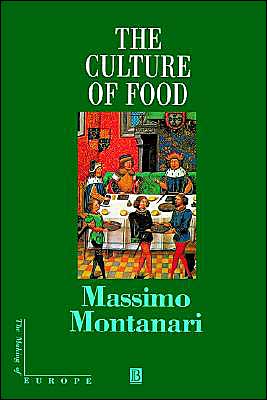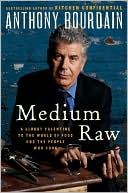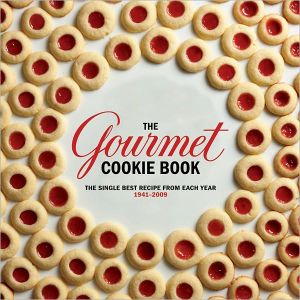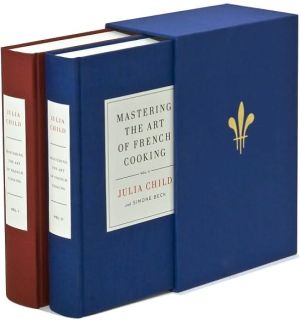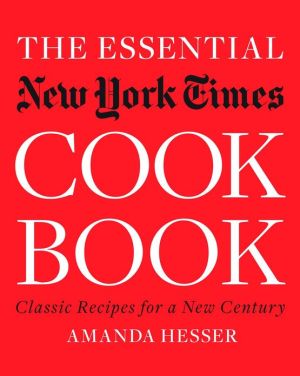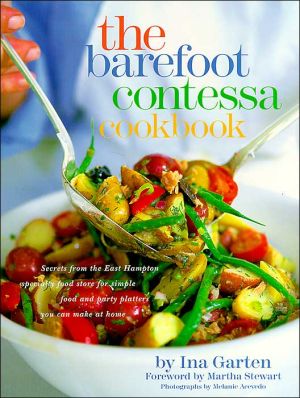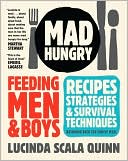The Culture of Food (Making of Europe Series)
This book is about the history of food in Europe and the part it has played in the evolution of the European cultures over two millennia. It has been a driving force in national and imperial ambition, the manner of its production and consumption a means by which the identity and status of regions, classes and individuals have been and still are expressed. In this wide-ranging exploration of its history the author weaves deftly between the classes, regions and nations of Europe, between the...
Search in google:
This book is about the history of food in Europe and the part it has played in the evolution of European cultures over two millennia. Food is the prerequisite both of survival and of culture. It has been a driving force in national and imperial ambition, the manner of its production and consumption a means by which the identity and status of regions, classes and individuals have been and still are expressed. The European relationship to food has rarely been straightforward. In this wide-ranging exploration of its history the author weaves deftly between the social groups, geographical areas and nations of Europe, between the habits of late antiquity and the problems of modernity. He examines the interlinked evolutions of consumption, production and taste, to show both what these reveal of the varied cultures and peoples of Europe in the past and what they suggest about the present. R. James Tobin, Univ. of Wisconsin Lib., Milwaukee - Library Journal A history of hunger and scarcity as well as consumption, this account of food in Europe from the Middle Ages to the 19th century, with a glance back and forward, emphasizes class and regional differences in dietary habits. A varied diet has always reflected social status, and Montanari (history, Univ. of Bologna) shows what extremes this has taken. He contrasts royal meals of many dishes with single-food diets and shows how burghers responded to hungry paupers and peasants. In addition, Greco-Roman ideals of moderation are contrasted with Germanic and Celtic ideals of the powerful appetite. There is much about meat and bread, beer and wine, which predated rice, maize, potatoes, pasta (originally a luxury food), tea, and coffee. Though one wishes that Montanari had extended his treatment to the 20th century, this remains a fascinating book that will appeal to curious lay readers as well as scholars. Recommended for all academic and larger public libraries.
Series Editor's PrefaceA Proposal1The Basis for a Common Language1The Age of Famine1Barbarians and Romans5The Meat of the Strong11The Bread (and the Wine) of God15Feasting and Fasting21Terra et Silva26The Colour of Bread30Using Nature332The Turning-Point38A Forced Choice38Power and Privilege43Give Us This Day Our Daily Bread...47The Throat of the City51To Eat Much and Well55Gastronomy and Famine593To Each His Own68The Return of Hunger68A Carnivorous Europe?71A Meatless Diet78A Question of Quality82A Table to Admire91The Abundance of the Poor944Europe and the World98A Wonderful Land Beyond the Sea98New Players100Bread and Meat104Bourgeois Ferocity108The Two Europes110Changing Tastes116Old and New Drugs1215The Century of Hunger129Does History Repeat Itself?129The Hard-Fought Rise of Maize133The Potato, Between Agronomy and Policy137Macaroni Eaters140Population and Nutrition144The Evils of Meat1486The Revolution152A Reversal of Trends152Meat Redux153All the World's a City156A Food for All Seasons159Pleasure, Health and Beauty165Notes172Bibliography194Index207
\ From the Publisher"Massimo Montanari has sliced through the evidence of anecdotes, novellas, dietary tracts and demographic surveys to show the close and often surprising connections between food as precarious necessity and food as symbol of power, culture and social ambition." Times Literary Supplement\ \ \ \ \ \ Library JournalA history of hunger and scarcity as well as consumption, this account of food in Europe from the Middle Ages to the 19th century, with a glance back and forward, emphasizes class and regional differences in dietary habits. A varied diet has always reflected social status, and Montanari (history, Univ. of Bologna) shows what extremes this has taken. He contrasts royal meals of many dishes with single-food diets and shows how burghers responded to hungry paupers and peasants. In addition, Greco-Roman ideals of moderation are contrasted with Germanic and Celtic ideals of the powerful appetite. There is much about meat and bread, beer and wine, which predated rice, maize, potatoes, pasta (originally a luxury food), tea, and coffee. Though one wishes that Montanari had extended his treatment to the 20th century, this remains a fascinating book that will appeal to curious lay readers as well as scholars. Recommended for all academic and larger public libraries.\ —R. James Tobin, Univ. of Wisconsin Lib., Milwaukee\ \ \ BooknewsA study of the production systems and consumption models of food, focusing primarily on the era commonly known as the Middle Ages (the author rejects this term as a misleading construct), delving as far back as the third century and forward to the present. Focusing on Europe, Montanari (history, Universities of Catania and Bologna) explores ideas such as famine and abundance, changes in eating habits, consequences of trade, and the connection between food and identity in bourgeois societies.\ Annotation c. Book News, Inc., Portland, OR (booknews.com)\ \
